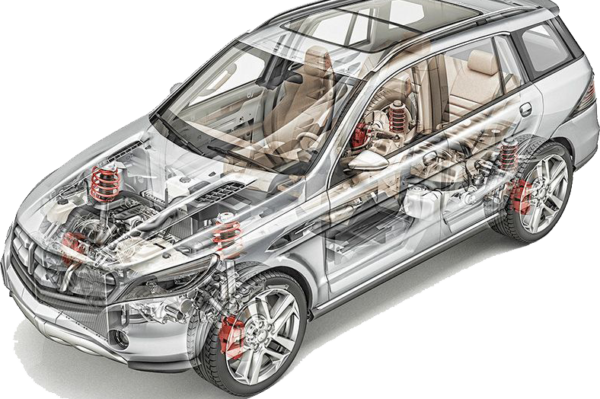
Electric vehicles (EVs) have often been hailed as the future of transportation, promising a cleaner, greener alternative to traditional gasoline-powered cars. They emit zero tailpipe emissions, significantly reduce noise pollution, and are often seen as a vital tool in combating climate change. However, while electric cars have many advantages, it’s essential to recognize that they are not entirely pollution-free. The energy that powers these vehicles has to come from somewhere, and that source can have significant environmental impacts.
The Source of Electricity Matters
CarpartSolutions LLC
The primary advantage of electric cars is that they don’t emit harmful pollutants while being driven. However, the electricity used to charge these vehicles is often generated from fossil fuels such as coal, natural gas, and oil. In many parts of the world, the electricity grid is still heavily dependent on these non-renewable energy sources. When you charge an electric vehicle in such regions, the energy used may contribute to greenhouse gas emissions, air pollution, and other environmental issues.
The Source of Electricity Matters
The primary advantage of electric cars is that they don’t emit harmful pollutants while being driven. However, the electricity used to charge these vehicles is often generated from fossil fuels such as coal, natural gas, and oil. In many parts of the world, the electricity grid is still heavily dependent on these non-renewable energy sources. When you charge an electric vehicle in such regions, the energy used may contribute to greenhouse gas emissions, air pollution, and other environmental issues.
For instance, in countries where coal is a major source of electricity, the environmental benefits of electric cars can be significantly diminished. Coal-fired power plants are one of the largest sources of carbon dioxide emissions, which contribute to global warming. In such cases, the emissions generated by charging an electric vehicle could be comparable to, or even higher than, those from a highly efficient gasoline-powered car.
The Carbon Footprint of Manufacturing
Beyond the source of electricity, the manufacturing process of electric vehicles also has environmental implications. Producing the batteries that power electric cars is energy-intensive and often involves the extraction of rare earth metals such as lithium, cobalt, and nickel. The mining and processing of these materials can result in significant environmental degradation, including deforestation, soil contamination, and water pollution.
Additionally, the production of electric vehicle batteries generates a substantial amount of carbon emissions. A study by the Swedish Environmental Research Institute found that the production of batteries for electric cars could result in the emission of up to 17.5 tons of carbon dioxide per vehicle. This figure highlights that while electric cars may have lower emissions during their use phase, their production phase can be quite carbon-intensive.
End-of-Life Challenges
Another often-overlooked aspect of electric vehicles is their end-of-life impact. The disposal and recycling of electric vehicle batteries pose significant environmental challenges. These batteries contain hazardous materials that, if not properly handled, can lead to soil and water contamination. Moreover, the recycling process for these batteries is complex and energy-intensive, and current recycling rates are relatively low.
The growing popularity of electric vehicles means that in the coming decades, there will be a significant increase in the number of used batteries that need to be recycled or disposed of. Without proper infrastructure and regulation, this could lead to a new environmental problem.
Conclusion: A Step in the Right Direction
While electric vehicles are not entirely pollution-free, they represent a step in the right direction towards reducing the environmental impact of transportation. The key to maximizing their benefits lies in the continued development of renewable energy sources, improvements in battery technology, and the establishment of efficient recycling systems.
As consumers and policymakers, it is essential to take a holistic view of electric vehicles, considering not only their emissions during use but also the environmental impacts of their production, energy source, and end-of-life disposal. By doing so, we can work towards a future where transportation is truly sustainable and environmentally friendly by carparpartsolutions.us .






This is a useful post for finding broken links within the website, what about links pointing outwards that are broken? I can use a free web service but wondered if this was possible.
Great tool! I am using a redirect plugin to send all my 404’s to my home page but I think it’s slacking sometimes.